MercoPress. South Atlantic News Agency
Chile
-
Thursday, January 14th 2021 - 08:57 UTC
Chile: Crucial electoral year to rewrite a new constitution takes off
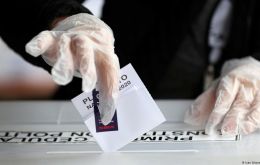
The Chilean Electoral Service registered 2,223 hopeful candidates for selection to the commission that will rewrite Chile's dictatorship-era constitution. The 14 million Chilean eligible are scheduled to elect on April 11 the 155 members of the Constituent Assembly that will rewrite the constitution, which dates from the rule of military dictator Augusto Pinochet (1973-90).
-
Wednesday, January 13th 2021 - 07:35 UTC
Piñera and Chilean First Lady under “preventive quarantine”
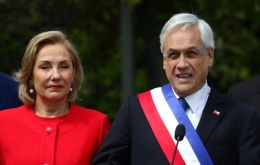
Chilean President Sebastian Piñera and his wife Cecilia Morel are to begin “preventive quarantine” after coming into close contact with a person later diagnosed to have COVID-19, the president's press office said on Tuesday.
-
Tuesday, January 5th 2021 - 09:42 UTC
Chile's unemployment eases to 10,8% but still several points above 2019

Chile's unemployment rate eased to 10.8% between September and November, the government said in the last day of 2020, but remained well above the same period the previous year as the coronavirus pandemic continued to weigh on the economy of the world's top copper producer.
-
Tuesday, January 5th 2021 - 09:15 UTC
Qatar Airways and LATAM expand South America networks

Qatar Airways is pleased to announce it has increased São Paulo services to 10 weekly flights and expanded codeshare cooperation with LATAM Airlines Brasil optimizing connectivity for both airline’s passengers to and from destinations in Asia, the Middle East and South America. The new codeshare agreement will further strengthen the two airlines’ strategic partnership, first initiated in 2016 and recently expanded in June 2019.
-
Friday, January 1st 2021 - 21:59 UTC
Reflections about very busy times in Chile: “2020, a year like no other”
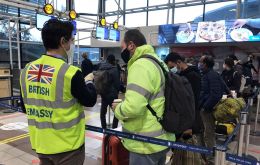
From the repatriation of British tourists stranded in Chile to the preparations for the UK’s exit from the EU, Ambassador Ian Duddy, speaks about this year's work.
-
Monday, December 28th 2020 - 08:50 UTC
Sunday 6,8 magnitude earthquake rocks south central Chile on Sunday
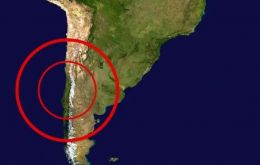
An earthquake of magnitude 6.8 struck off the coast of south-central Chile on Sunday, the European Mediterranean Seismological Centre (EMSC) said, but Chilean officials immediately discarded the risk of a tsunami.
-
Thursday, December 24th 2020 - 08:25 UTC
Coronavirus sniffer dogs at Santiago de Chile international airport

The task of sniffing out passengers infected with COVID-19 at Chile's Santiago international airport is going to the dogs. A team of Golden Retrievers and Labradors sit when they smell the virus and get a treat. The canines sport green “biodetector” jackets with a red cross.
-
Tuesday, December 22nd 2020 - 08:46 UTC
Chilean army base in Antarctica detects 36 positive Covid-19 cases; Navy support vessel blamed
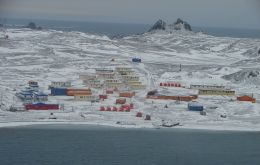
A coronavirus outbreak with 36 positive tests was reported on Monday at a Chilean Army base in Antarctica, the only continent, up to now, free of the virus. The army's Monday release said that at the Bernardo O'Higgins Riquelme base, following suspicions, swabbing testing was practiced in all personnel resulting in 36 positive cases, of which 26 belonging to the Army and ten to members of a contractor, doing maintenance work at the base.
-
Monday, December 21st 2020 - 08:55 UTC
Argentina and Chile suspend flights from UK as of midnight Tuesday
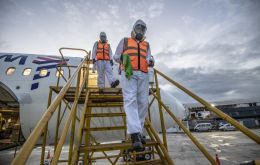
Argentina and Chile announced late Sunday that they are suspending flights from the UK after health officials in Britain confirmed that a new variant of the coronavirus was rapidly spreading in the country.
-
Saturday, December 19th 2020 - 09:40 UTC
Chilean president fined US$ 3,500 after posing for a selfie without a face mask

Chilean President Sebastian Piñera was slapped with a US$ 3,500 fine on Friday after posing for a selfie on the beach with a bystander without wearing a mask as required during the coronavirus pandemic, health authorities said.
